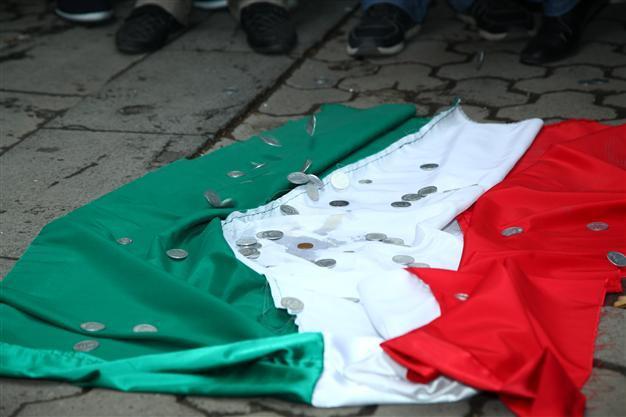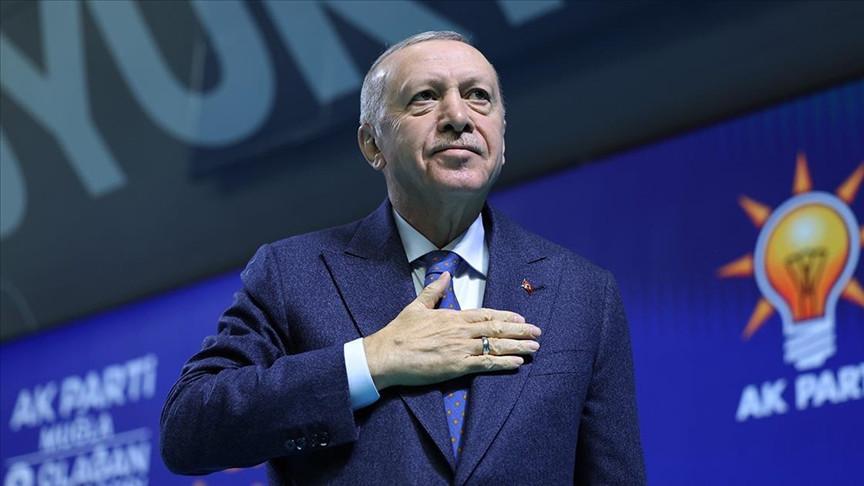Yerevan, Baku engage in war of words after pardon
YEREVAN

A Hungarian flag is put on the ground during a protest at the Hungarian Consulate in Yerevan, Armenia, Saturday, Sept. 1, 2012. Armenia broke off diplomatic ties with Hungary after an Azerbaijani military officer sentenced to life in prison here for killing an Armenian officer was sent back to his homeland on Friday and, despite assurances, immediately pardoned and freed. The coins on the flag symbolizes that Hungarian were paid to release the Azeri officer. (AP Photo/Tigran Mehrabyan, PanARMENI
Armenia has upped the ante against Azerbaijan in the wake of President İlham Aliyev’s decision to pardon and promote a soldier convicted of murdering an Armenian counterpart, warning its Caspian foe that “it is ready for war.”“We don’t want a war, but if we have to, we will fight and win. We are not afraid of killers, even if they enjoy the protection of the head of state,” Armenian President Serzh Sargsyan said in a statement late on Sept. 2. “They [Azerbaijanis] have been warned.”
Azerbaijani President İlham Aliyev immediately pardoned Ramil Safarov after he was extradited from Hungary, where he had been serving a life sentence for hacking Armenian officer Gurgen Markarian to death with an ax in 2004. Safarov was also promoted to the rank of major, given a house and eight years’ worth of back-pay after returning home to a hero’s welcome, in defiance of assurances from Baku to Budapest that he would serve out his term in Azerbaijan.
Russia concerned
Hungary summoned Azerbaijan’s ambassador to protest at Baku’s decision after earlier saying it had been assured Safarov would serve out his term.
“Hungary finds it unacceptable and condemns the pardoning of Ramil Safarov,” Foreign Ministry State Secretary Zsolt Nemeth told Ambassador Vilayat Guliyev.
Russia, which is part of the Organization for Security and Cooperation in Europe (OSCE) Minsk Group that is mediating in negotiations to find a peaceful solution to the Karabakh conflict, expressed “deep concern” over the extradition and pardon.
“We believe that these actions of the Azerbaijanis, as well as the Hungarian authorities, go against the efforts agreed at an international level primarily through the OSCE Minsk Group aimed at reducing tension in the region,” Russian Foreign Ministry spokesman Alexander Lukashevich said in a statement.
The EU said Baku and Yerevan should refrain from exacerbating the dispute.
“We call on Azerbaijan and Armenia to exercise restraint on the ground and in public statements in order to prevent any kind of escalation of this situation,” Maja Kocijancic, a spokeswoman for EU foreign policy chief Catherine Ashton, told a news conference in Brussels.
Armenia and Azerbaijan are locked in a long-running conflict over the disputed region of Nagorno-Karabakh, where they fought a war in the 1990s. The conflict left around 30,000 people dead and displaced hundreds of thousands.
Safarov hacked Markarian to death at a military academy in Budapest where the servicemen were attending English-language courses organized by NATO. His lawyers claimed in court that he was traumatized because some of his relatives had been killed during the war with Armenian forces and alleged that Markarian had insulted Azerbaijan.
















